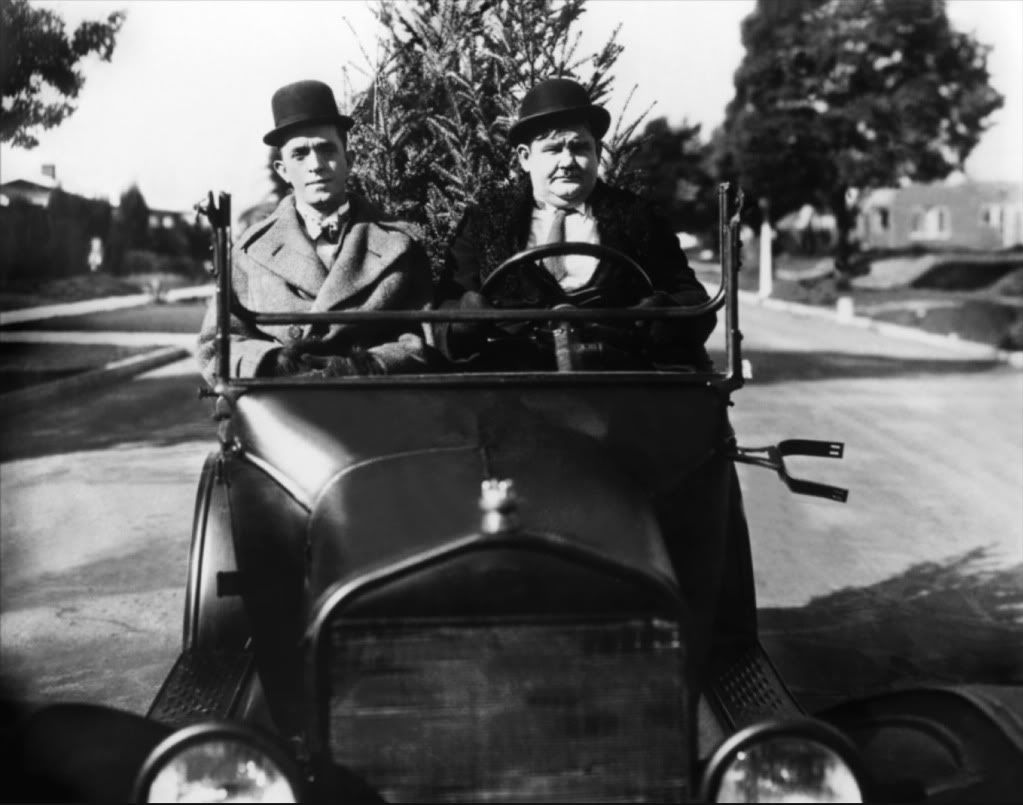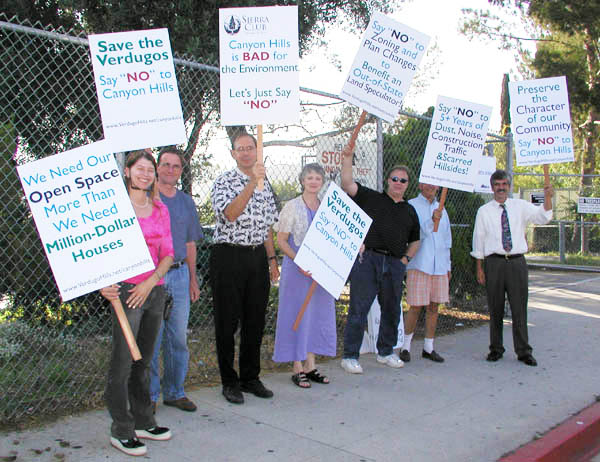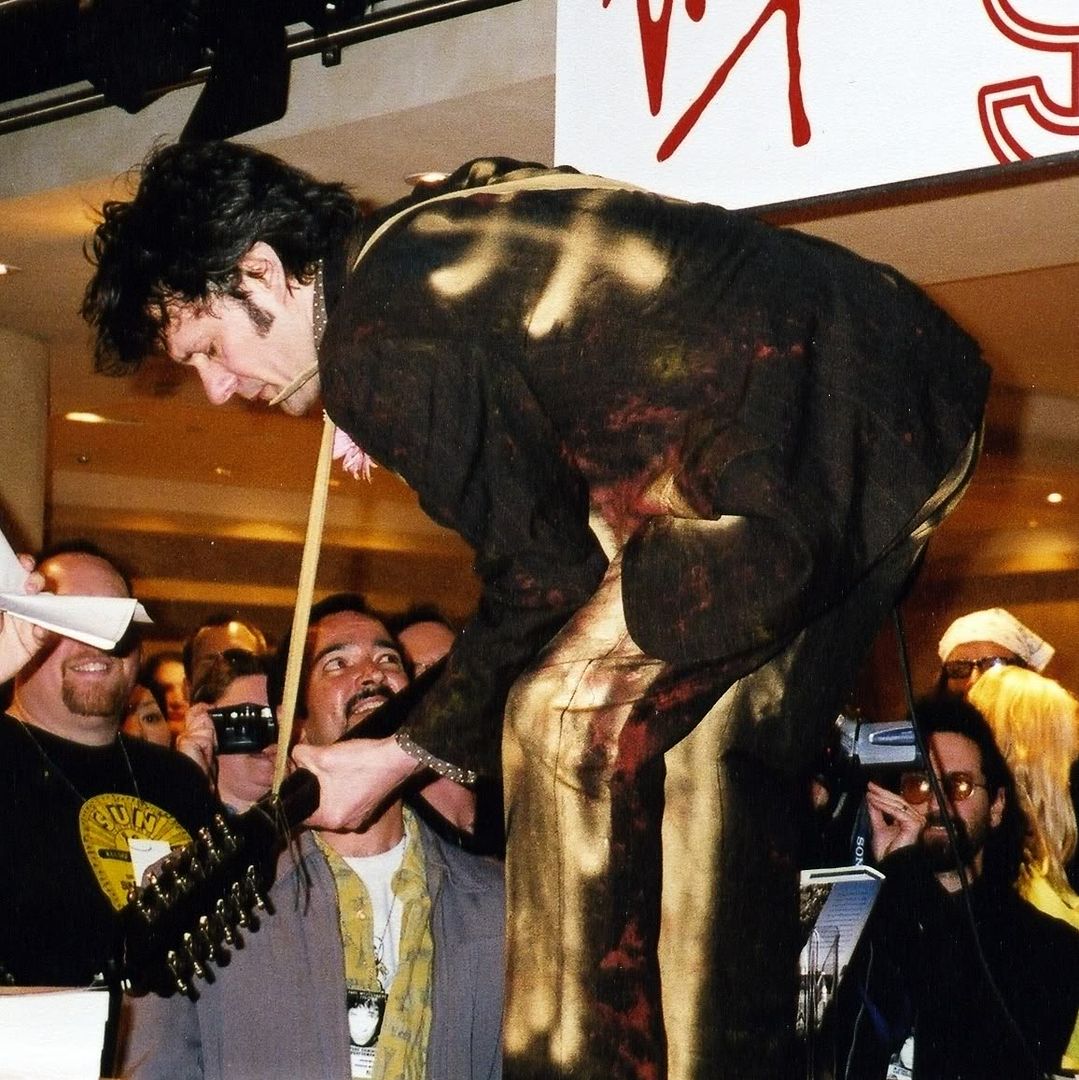Post by mrwhirly on May 11, 2007 11:26:14 GMT -5
arts.guardian.co.uk/filmandmusic/story/0,,2076446,00.html
(cut and paste)
'I was no longer a loser'
Today Craig Finn is in the Hold Steady, this year's buzz band. But in 1984 he was a bullied, unhappy kid - until he found a group that showed him music could make a difference
Friday May 11, 2007
The Guardian
People often ask me if there's a message in the band I front, the Hold Steady. I guess there is, and I guess it's the same one I learned more than 20 years ago when I heard a band who came from my hometown of Minneapolis, Minnesota.
October 1984 found me 13 years old and drudging away in the eighth grade at Valley View junior high school in Edina, Minnesota, a suburb just outside Minneapolis. Valley View was a terrible place, designed to let seventh, eighth, and ninth graders sit and spin while they waited out puberty. The teachers were often the trophy-winning athletics coaches from the adjoining Edina senior high school, a sports powerhouse. Most classes began with the lights shutting off, followed by the hum of a film projector, and a movie that may or may not have anything to do with the ostensible subject of the class. In the hallway, the small and bespectacled of us moved hurriedly between classes, avoiding the eyes of the bullies and the jocks who seemed to only love two things in life: sadistic acts of terror and spitting.
Article continues
I had shown up at Valley View for seventh grade thinking I was a normal kid, friends with everyone equally, as I had been in my grade school. Not the first to be picked for a baseball game, but also not the last, and certainly not an outcast. But over the summer, as if it had been decided in a forum I hadn't attended, I was deemed a "loser". That was a self-fulfilling prophecy. I retreated deeper into books. I became more timid. I spoke less. But I also started spending more time playing the guitar I had received as a gift for my 12th birthday, and started seeking out music. However, in the time before the internet, this was a different game. Rock'n'roll, outside of classic rock radio, was but a whisper on the wind. Information came in the form of unreliable rumours, most often centred on what animal Ozzy Osbourne had defiled that week. Heavy metal all seemed quite silly to me, but I found a humour and excitement in the Ramones. I dug their self deprecation, their refusal to pander, and mostly their fast and samey music, which echoed the monotony of the suburbs. However, like Woody Allen movies, there was something inherently New York about the Ramones, which caused a slight divide between them and a midwestern 13-year-old. However, there was something brewing closer to home.
Early in the summer before the eighth grade, a friend had hipped me to a band called the Replacements. Apparently his older sister knew the bass player, Tommy Stinson, who was just a few years older than us. He told me the band lived in nearby south Minneapolis, and was "sort of like the Ramones". I picked up their Hootenanny album. It was sloppy and fun rock'n'roll, with wild lead guitars and a great sense of humour. The second song on the record, Run It, advised recklessness in the form of running red lights, naming south Minneapolis streets: "Lyndale, Garfield, Run It!" It was a revelation that such excitement lived so close to me, just a few miles east, an easy bicycle or bus ride. I picked up their remaining records as quickly as I could. It took a 45-minute bus ride to south Minneapolis, to a shambling record store called Oar FolkJokeOpus (diagonally opposite from the CC Club, where the Replacements supposedly drank). But the journeys into the city were part of the excitement, and part of the folklore that existed around the band, both for real and in my head.
Back at school in September, I met a few other kids who were into the Replacements, if not at the same obsessional level as I was. They introduced me to other bands that you didn't hear on the radio stations: Hüsker Dü and Soul Asylum were the other big bands in the Minneapolis scene, but there were others - Otto's Chemical Lounge, Outcry, Rifle Sport.
From California, I discovered the punk bands of the SST label: Minutemen, Black Flag, the Descendents, and there were more from other parts of the country. The local bands were always the most exciting, though, because of the hometown connection (as with the Replacements, you'd often find a friend's older sister who knew them). I had never before considered that rock music could be made any place near the green idylls of Edina, and never would have expected there was an endless number of great bands playing every night within a few miles of home. Because of liquor laws and age restrictions, live rock'n'roll was still mostly untouchable to us, but soon I started attending shows - the "all-ages hardcore matinee shows" we sing about in the Hold Steady - at First Avenue, the legendary nightclub featured prominently in the movie Purple Rain, a building that still is the heart and home to my idea of rock'n' roll.
Going to these shows, and going to uptown Minneapolis to buy records, was the highlight of the week. It made the abuse and dire boredom of my daily school life bearable, almost. I had become a poor student - nothing captured my attention like my records. After school I would retreat to my room, put them on the turntable and try to play along with my candy apple red Stratocaster copy that never sounded like it contained a millionth of the power of a Hüsker Dü record.
But if I wasn't succeeding at school, I had at least created an identity I could live with. I was no longer just a "loser", I was a music fan. I spoke a language that set me apart from the other kids at school. I could talk about labels, EPs, the Athens music scene. There were even some girls our age that liked rock, although they mostly would tell you they only liked the Smiths. They would stand in line smoking cigarettes and sometimes smile at you. It was heartening, if still vaguely threatening. But it made me feel human in a way school rarely did.
October 1984 brought a change to my life, and also to Minneapolis. It was around this time that I started noticing the graffiti of the local street gangs the Gangster Disciples and the Vice Lords, our local chapters of the national Crips and Blood gangs. Within a year, they had murdered a high school girl in Martin Luther King park, and many years and many murders later, the New York Times dubbed my hometown "Murderapolis". Our city's biggest celeb, Prince, had finally become a megastar with Purple Rain. And the Replacements released Let It Be, which still stands as my favourite ever record.
Like most records, it arrived on a Tuesday, but I wasn't able to get to the store until Saturday. The anticipation was killing me. I didn't even know what the cover looked like. I convinced my father to drive me to the store, and he did me one better by buying the record for me. Even he could tell this one was "important". The cover art was a thing of beauty, the coolest known band in the universe just sitting on a roof, looking dishevelled and uninterested. I scanned the song titles: I Will Dare, Favorite Thing, We're Coming Out. My father raised his eyebrows at the title Gary's Got a Boner but still shelled out. The record store clerk was kind enough to turn down the volume and point to each of us: "Cool dad. Cool kid," he said. I am sure my father doesn't remember that, but I always will.
Of course, things eventually got better for me. They do for everyone, when greater confidence helps you overcome the awkwardness of early teendom. I eventually switched to a private school that was more kind to creative types. I got my first girlfriend. I started a band. Not in that order.
But still to this day when I hear Let It Be, and especially the songs Unsatisfied and Sixteen Blue, it gives me a bit of the creeps. While lots of rock'n'roll makes you think that your teens should be all about riding in a convertible with the top down, Paul Westerberg, the leader of the Replacements, is somehow magically able to capture the part of being teenage that is scary and embarassing.
And when I hear it, I know what we're trying to do, too: let people know that everything is going to be OK. And when it isn't, rock'n'roll can help.
(cut and paste)
'I was no longer a loser'
Today Craig Finn is in the Hold Steady, this year's buzz band. But in 1984 he was a bullied, unhappy kid - until he found a group that showed him music could make a difference
Friday May 11, 2007
The Guardian
People often ask me if there's a message in the band I front, the Hold Steady. I guess there is, and I guess it's the same one I learned more than 20 years ago when I heard a band who came from my hometown of Minneapolis, Minnesota.
October 1984 found me 13 years old and drudging away in the eighth grade at Valley View junior high school in Edina, Minnesota, a suburb just outside Minneapolis. Valley View was a terrible place, designed to let seventh, eighth, and ninth graders sit and spin while they waited out puberty. The teachers were often the trophy-winning athletics coaches from the adjoining Edina senior high school, a sports powerhouse. Most classes began with the lights shutting off, followed by the hum of a film projector, and a movie that may or may not have anything to do with the ostensible subject of the class. In the hallway, the small and bespectacled of us moved hurriedly between classes, avoiding the eyes of the bullies and the jocks who seemed to only love two things in life: sadistic acts of terror and spitting.
Article continues
I had shown up at Valley View for seventh grade thinking I was a normal kid, friends with everyone equally, as I had been in my grade school. Not the first to be picked for a baseball game, but also not the last, and certainly not an outcast. But over the summer, as if it had been decided in a forum I hadn't attended, I was deemed a "loser". That was a self-fulfilling prophecy. I retreated deeper into books. I became more timid. I spoke less. But I also started spending more time playing the guitar I had received as a gift for my 12th birthday, and started seeking out music. However, in the time before the internet, this was a different game. Rock'n'roll, outside of classic rock radio, was but a whisper on the wind. Information came in the form of unreliable rumours, most often centred on what animal Ozzy Osbourne had defiled that week. Heavy metal all seemed quite silly to me, but I found a humour and excitement in the Ramones. I dug their self deprecation, their refusal to pander, and mostly their fast and samey music, which echoed the monotony of the suburbs. However, like Woody Allen movies, there was something inherently New York about the Ramones, which caused a slight divide between them and a midwestern 13-year-old. However, there was something brewing closer to home.
Early in the summer before the eighth grade, a friend had hipped me to a band called the Replacements. Apparently his older sister knew the bass player, Tommy Stinson, who was just a few years older than us. He told me the band lived in nearby south Minneapolis, and was "sort of like the Ramones". I picked up their Hootenanny album. It was sloppy and fun rock'n'roll, with wild lead guitars and a great sense of humour. The second song on the record, Run It, advised recklessness in the form of running red lights, naming south Minneapolis streets: "Lyndale, Garfield, Run It!" It was a revelation that such excitement lived so close to me, just a few miles east, an easy bicycle or bus ride. I picked up their remaining records as quickly as I could. It took a 45-minute bus ride to south Minneapolis, to a shambling record store called Oar FolkJokeOpus (diagonally opposite from the CC Club, where the Replacements supposedly drank). But the journeys into the city were part of the excitement, and part of the folklore that existed around the band, both for real and in my head.
Back at school in September, I met a few other kids who were into the Replacements, if not at the same obsessional level as I was. They introduced me to other bands that you didn't hear on the radio stations: Hüsker Dü and Soul Asylum were the other big bands in the Minneapolis scene, but there were others - Otto's Chemical Lounge, Outcry, Rifle Sport.
From California, I discovered the punk bands of the SST label: Minutemen, Black Flag, the Descendents, and there were more from other parts of the country. The local bands were always the most exciting, though, because of the hometown connection (as with the Replacements, you'd often find a friend's older sister who knew them). I had never before considered that rock music could be made any place near the green idylls of Edina, and never would have expected there was an endless number of great bands playing every night within a few miles of home. Because of liquor laws and age restrictions, live rock'n'roll was still mostly untouchable to us, but soon I started attending shows - the "all-ages hardcore matinee shows" we sing about in the Hold Steady - at First Avenue, the legendary nightclub featured prominently in the movie Purple Rain, a building that still is the heart and home to my idea of rock'n' roll.
Going to these shows, and going to uptown Minneapolis to buy records, was the highlight of the week. It made the abuse and dire boredom of my daily school life bearable, almost. I had become a poor student - nothing captured my attention like my records. After school I would retreat to my room, put them on the turntable and try to play along with my candy apple red Stratocaster copy that never sounded like it contained a millionth of the power of a Hüsker Dü record.
But if I wasn't succeeding at school, I had at least created an identity I could live with. I was no longer just a "loser", I was a music fan. I spoke a language that set me apart from the other kids at school. I could talk about labels, EPs, the Athens music scene. There were even some girls our age that liked rock, although they mostly would tell you they only liked the Smiths. They would stand in line smoking cigarettes and sometimes smile at you. It was heartening, if still vaguely threatening. But it made me feel human in a way school rarely did.
October 1984 brought a change to my life, and also to Minneapolis. It was around this time that I started noticing the graffiti of the local street gangs the Gangster Disciples and the Vice Lords, our local chapters of the national Crips and Blood gangs. Within a year, they had murdered a high school girl in Martin Luther King park, and many years and many murders later, the New York Times dubbed my hometown "Murderapolis". Our city's biggest celeb, Prince, had finally become a megastar with Purple Rain. And the Replacements released Let It Be, which still stands as my favourite ever record.
Like most records, it arrived on a Tuesday, but I wasn't able to get to the store until Saturday. The anticipation was killing me. I didn't even know what the cover looked like. I convinced my father to drive me to the store, and he did me one better by buying the record for me. Even he could tell this one was "important". The cover art was a thing of beauty, the coolest known band in the universe just sitting on a roof, looking dishevelled and uninterested. I scanned the song titles: I Will Dare, Favorite Thing, We're Coming Out. My father raised his eyebrows at the title Gary's Got a Boner but still shelled out. The record store clerk was kind enough to turn down the volume and point to each of us: "Cool dad. Cool kid," he said. I am sure my father doesn't remember that, but I always will.
Of course, things eventually got better for me. They do for everyone, when greater confidence helps you overcome the awkwardness of early teendom. I eventually switched to a private school that was more kind to creative types. I got my first girlfriend. I started a band. Not in that order.
But still to this day when I hear Let It Be, and especially the songs Unsatisfied and Sixteen Blue, it gives me a bit of the creeps. While lots of rock'n'roll makes you think that your teens should be all about riding in a convertible with the top down, Paul Westerberg, the leader of the Replacements, is somehow magically able to capture the part of being teenage that is scary and embarassing.
And when I hear it, I know what we're trying to do, too: let people know that everything is going to be OK. And when it isn't, rock'n'roll can help.










